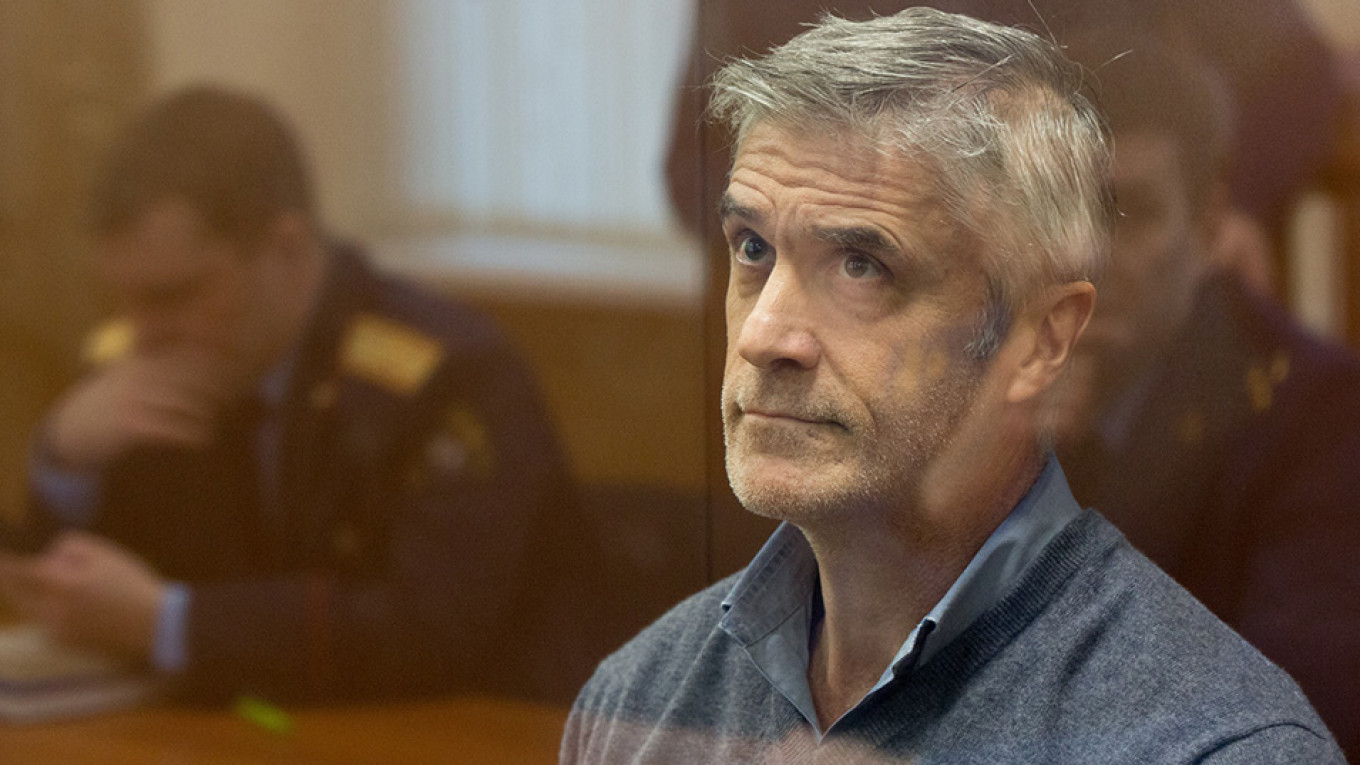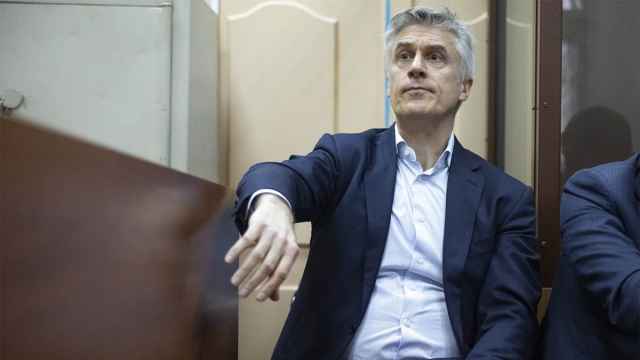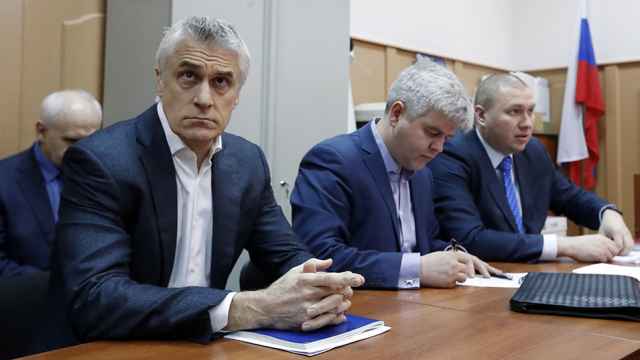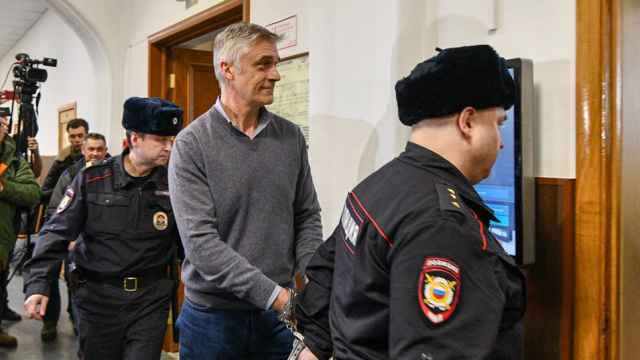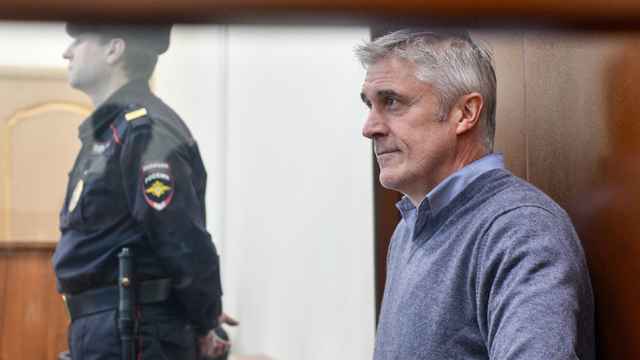U.S. private equity manager Michael Calvey, whose February arrest on fraud charges shook Russia’s foreign-investment community, still wants to go to the Kremlin’s premier economic showcase in St. Petersburg next week.
But he needs the permission of the country’s Investigative Committee to leave his Moscow apartment, where he’s being held under house arrest in a case he dismisses as part of a commercial dispute. His lawyers plan to file the request soon, according to his firm, Baring Vostok Capital Partners.
His enthusiasm for the St. Petersburg event, where President Vladimir Putin is scheduled to make a speech pitching Russia to foreign investors, contrasts with that of U.S. Ambassador Jon Huntsman, who said on Tuesday he’s boycotting the forum to protest the Kremlin’s handling of the Calvey case.
Calvey was moved from jail to house arrest last month after an outcry about the case from top state-company executives and government officials, as well as major foreign investors. Some of his partners, including French citizen Philippe Delpal, remain behind bars in the case.
The Investigative Committee did not immediately respond to a request for comment on Calvey’s plans Monday.
Confined to his downtown Moscow apartment, Calvey is required to wear an ankle bracelet, is barred from using the internet and can’t speak to anyone except his lawyers and immediate family.
The case against Calvey and his partners alleges they overvalued assets Baring Vostok contributed to Bank Vostochny, a lender the fund controls. They deny wrongdoing and blame the prosecution on a corporate conflict with the other large shareholders at the bank.
Calvey, 51, an Oklahoma native, founded Moscow-based Baring Vostok in 1994 and the fund has raised $3.7 billion in total capital since then.
A Message from The Moscow Times:
Dear readers,
We are facing unprecedented challenges. Russia's Prosecutor General's Office has designated The Moscow Times as an "undesirable" organization, criminalizing our work and putting our staff at risk of prosecution. This follows our earlier unjust labeling as a "foreign agent."
These actions are direct attempts to silence independent journalism in Russia. The authorities claim our work "discredits the decisions of the Russian leadership." We see things differently: we strive to provide accurate, unbiased reporting on Russia.
We, the journalists of The Moscow Times, refuse to be silenced. But to continue our work, we need your help.
Your support, no matter how small, makes a world of difference. If you can, please support us monthly starting from just $2. It's quick to set up, and every contribution makes a significant impact.
By supporting The Moscow Times, you're defending open, independent journalism in the face of repression. Thank you for standing with us.
Remind me later.


